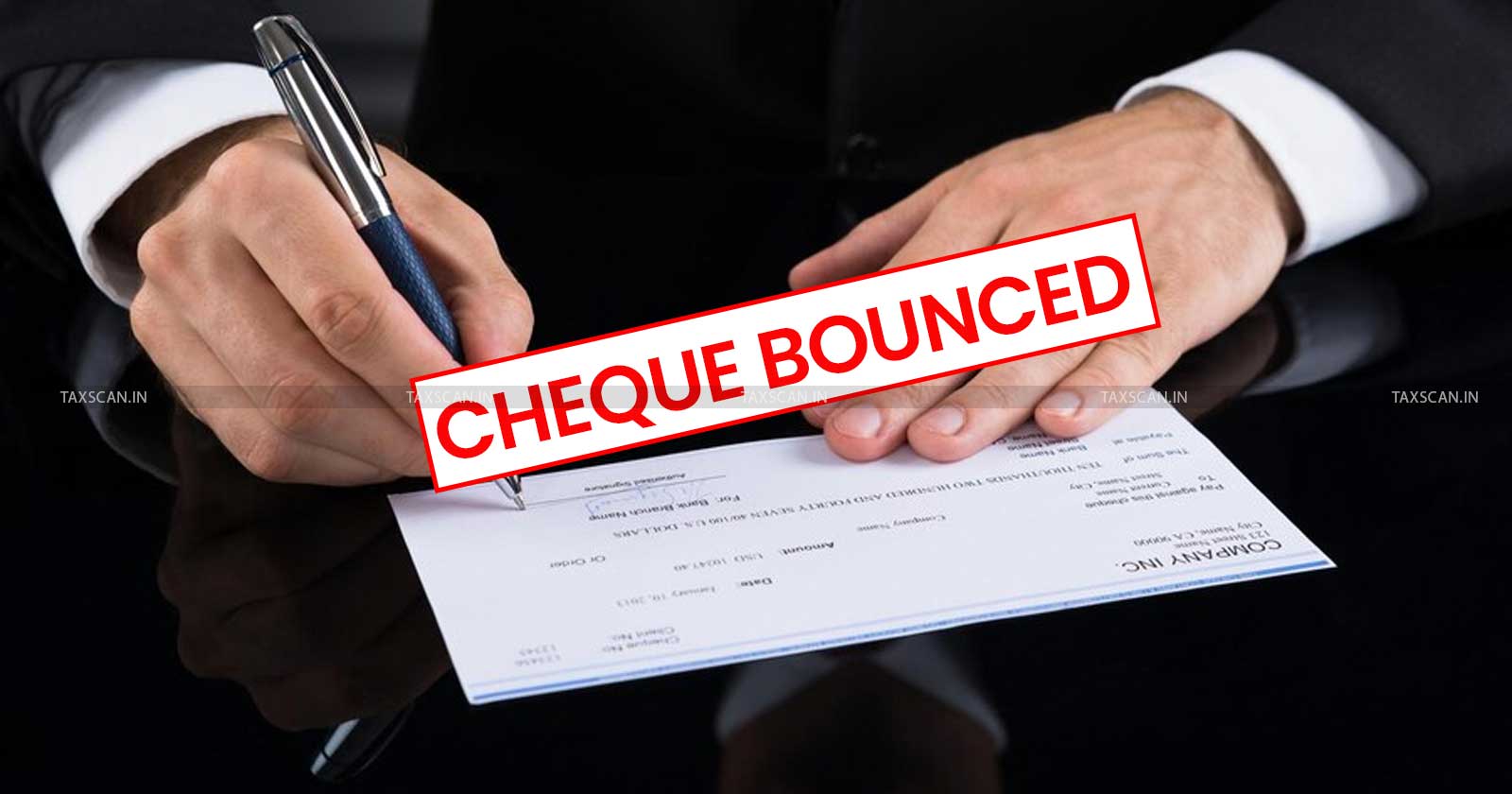Karnataka High Court Remands Case, Grants Accused Final Opportunity to Defend Cheque Bounce Allegations [Read Order]
The accused also claimed that he had filed applications under Section 91 of CrPC (seeking the complainant’s income tax records) and Section 45 of the Indian Evidence Act (to examine the handwriting on the cheques), but these were dismissed without due consideration

Cheque bounce case-Karnataka High Court cheque bounce case-Taxscan
Cheque bounce case-Karnataka High Court cheque bounce case-Taxscan
The Karnataka High Court has set aside the conviction orders in three cheque bounce cases, granting the accused a final opportunity to cross-examine the complainant and present his defense. The court ruled that the principles of natural justice warranted a fresh hearing, provided the accused deposits 50% of the fine amount before the trial court.
K.S. Ameer Jan, the petitioner who was convicted under Section 138 of the Negotiable Instruments Act, 1881, in three separate complaints filed by Maqbool Ahmed. The complainant alleged that the accused had taken a loan of Rs.6.25 lakh in October 2007 and issued post-dated cheques to discharge a part of the liability.
Know Practical Aspects of Tax Planning, Click Here
However, when the cheques were presented for clearance, they were dishonored due to insufficient funds. Despite receiving a legal notice demanding repayment, the accused failed to honor the cheques, leading to criminal complaints under Section 138 of the NI Act.
The 13th Additional Chief Metropolitan Magistrate, Bangalore, convicted the accused in all three cases and imposed fines ranging from Rs.1.05 lakh to Rs.3.05 lakh. The accused was also sentenced to six months of simple imprisonment in case of default. The accused then appealed before the Sessions Court, but the LIX Additional City Civil and Sessions Judge, Bangalore, dismissed the appeals and upheld the conviction.
The accused subsequently filed revision petitions before the Karnataka High Court, arguing that he had not been given a fair opportunity to cross-examine the complainant or present his defense. His counsel contended that the cheques had been misused and were issued for a different purpose.
The accused also claimed that he had filed applications under Section 91 of CrPC (seeking the complainant’s income tax records) and Section 45 of the Indian Evidence Act (to examine the handwriting on the cheques), but these were dismissed without due consideration.
Read More: Relief to Works Contractor Hi-LITE Projects: Kerala HC allows lower 4% tax rate under KVAT Act
The High Court reviewed the case and found that while the accused had been negligent in presenting his defense earlier, a final opportunity should be granted in the interest of justice. The court set aside the lower courts’ judgments and remanded the case back to the trial court with strict conditions. The accused was directed to deposit 50% of the fine amount before October 30, 2021. Upon compliance, the complainant was required to appear for cross-examination on November 15, 2021, and the accused had to present his defense evidence by December 6, 2021. The trial court was ordered to dispose of the case within 15 days thereafter.
Single Member Bench of N.K.Sudhindra Rao clarified that if the accused failed to comply with any of these conditions, the benefit of the order would be revoked automatically, and the conviction would stand reinstated.
In conclusion, the Karnataka High Court upheld the principles of natural justice by granting the accused a final opportunity to present his defense while imposing strict conditions to ensure timely proceedings. The court set aside the lower court’s conviction orders and directed the accused to deposit 50% of the fine amount before the case could be reheard.
To Read the full text of the Order CLICK HERE
Support our journalism by subscribing to Taxscan premium. Follow us on Telegram for quick updates


